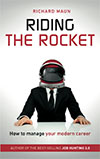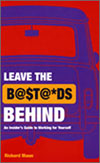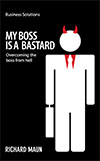better business blog
Tips and stories to add value to you and your organisation

Mental First Aid
Mental health is an increasingly important topic for all businesses and rightly so. However, there are two things that we have to keep in mind at all times:
1. Do no harm. It can be tempting to apply a little psychology to a colleague in an attempt to be helpful. Whilst this might make us feel good, it’s too easy to give unqualified and unwarranted advice. If in doubt, invite someone to seek professional help.
2. There’s no magic. People are complex and may respond in unpredictable ways to our overtures. What works for one person may have no value for the next one. Sometimes there is no answer.
And what is good mental health anyway? We all live and work under a degree of stress. We might need more sleep, be worried about family members and have a poor diet …and these things may be part and parcel of our busy lives.
It’s probably easier to assume that we are all in need of a boost to our mental health. This attitude avoids us being smug; that we’re okay and it’s the next person who has a problem.
In a work setting, my view is that mental first aid has 3 basic stages…
1. Noticing the need.
2. Offering support.
3. Making changes.
Noticing the need. We can observe colleagues and spot changes to established patterns. If a punctual person is starting to arrive late, we might wonder what’s behind that. If a calm person has angry outbursts we can take a step back and consider if their anger is a product of fatigue. Asking someone if they’re okay is a waste of time as they will tend to answer ‘I’m fine.’ Being noticed for being out of sorts can increase their stress. My suggestion is to notice when we have 3 pieces of evidence, as that shows a new pattern is forming.
Offering support. When we have our evidence the sensible thing to do is find a caring way to share this with our colleague, because people are often unaware of their own change in behaviour, or think that they’ve got away with it. Find a quiet space and make a gentle enquiry about the behaviour you’ve noticed. Be empathetic with them, which means holding the space, letting them talk and not weighing in with your own views and advice.
Support can also mean reminding them of company counselling schemes and similar. It also means reassuring them that their health is important to you. People can be worried about their job and a friendly smile and some encouragement can go a long way to soothe them.
Making changes. If my shoes are worn and giving me a blister then I will go and buy new shoes. The same applies at work. We can review someone’s workload. Move deadlines. Find ways to train them, or give them organisational coaching. We can give them time off too if they need a rest. There are always more options than we first realise and making a change, however small, is worth considering. Popping out for a coffee and a chat can work wonders and sometimes that’s all a person needs in the moment.
Mental first aid is about awareness, support and change. We can all take a moment this week to survey our colleagues and offer support to someone who is struggling.
Next week: Due Diligence
e-publishing
Click icon for details


recent posts
browse archive
books
Click cover to view details on Amazon
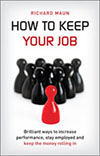
How to Keep Your Job
Brilliant ways to increase performance, stay employed and keep the money rolling in
Published 2011 Marshall Cavendish
208pp
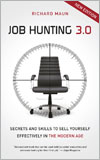
Job Hunting 3.0
Secrets and skills to sell yourself effectively in the Modern Age
Published 2010 Marshall Cavendish
260pp

 RSS
RSS